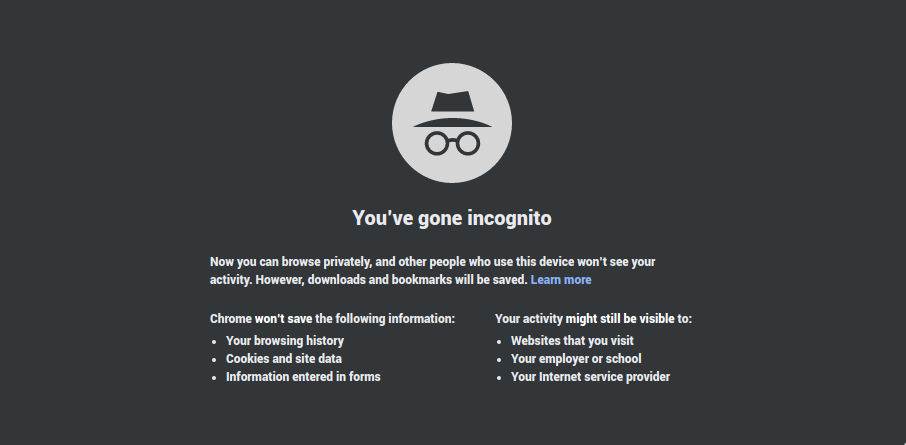Google Chrome’s Incognito Mode is at the forefront of a $5 billion class-action lawsuit which alleges users are being tracked during private browsing sessions or ‘Incognito’ mode on the Chrome browser.
The lawsuit alleges Google is in violation of wiretapping and privacy laws for intercepting, tracking, and collecting communications when Chrome’s Incognito mode is in use. District Judge Lucy Koh in the state of California ruled that Google “did not notify users” that it engages in wiretapping, breaching privacy laws for intercepting, tracking, and collecting communications.
“Now you can browse privately, and other people who use this device won’t see your activity. However, downloads and bookmarks will be saved,” the Google incognito mode reads, giving users the apparent choice to browse the internet without their activities being saved to either browser or devices.
Google has been trying to get the lawsuit dismissed since it was filed last June. A federal judge ruled the lawsuit must go forward. “We will defend ourselves vigorously against them,” a spokesperson said.
A class-action lawsuit, originally filed in June 2020 in the US District Court for the Northern District of California on behalf of three Google account users – Chasom Brown and Maria Nguyen, both of Los Angeles, and William Byatt, a Florida resident.
To be clear, the consumers who filed the case are taking issue with Google collecting data using other services while in Incognito mode.
For example, when a user visits a website in Incognito mode their data can still be collected by Google Analytics.
The consumers who filed the suit say they were under the impression Incognito mode offered all encompassing privacy from data trackers.
What is Google’s stance?
On its part, Google has already announced to phase out third-party cookies from Chrome browser. It had announced its intent to remove support for third-party cookies last year.
Google also disputes the claims, saying it does inform users every time they open an Incognito window that data may be collected by websites.




